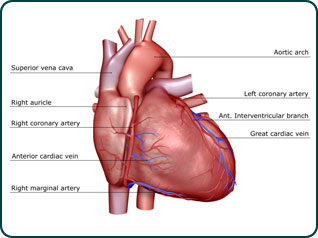![]()
Medicines for Preventing Heart Disease

Sometimes lifestyle changes aren't enough to reduce your blood pressure, cholesterol levels, or other risk factors. Your doctor also may recommend medicines. For example, you may need medicines to:
- Lower your LDL cholesterol
- Lower your blood pressure
- Lower your blood sugar level
- Prevent blood clots and/or inflammation
Take your medicines as prescribed. Don't cut back on the dosage unless your doctor tells you to. If you have side effects or other problems related to your medicines, talk to your doctor. He or she may be able to provide other options.
You should still follow a heart healthy lifestyle, even if you take medicines to control your risk factors.
Overview of Heart Disease
- Heart disease risk factors are conditions or habits that raise your risk for coronary heart disease (CHD) and heart attack.
- CHD is a condition in which a fatty material called plaque builds up on the inner walls of your coronary (heart) arteries. Plaque narrows the arteries and reduces blood flow to your heart muscle. It also makes it more likely that blood clots will form and partly or completely block blood flow to a section of your heart muscle.
- There are a number of known heart disease risk factors. You can control some risk factors, and others you can’t.
- Risk factors you can control include high blood cholesterol and high triglyceride levels, high blood pressure, diabetes and pre diabetes, overweight and obesity, smoking, lack of physical activity, unhealthy diet, and stress.
- The risk factors you can’t control include age, gender, and family history. However, even if you have a family history of heart disease, it doesn’t mean that you will have heart disease too. Making lifestyle changes and taking medicines to treat other risk factors often can lessen the genetic influences and stop or slow the progress of heart disease.
- Your risk for heart disease and heart attack increases with the number of risk factors you have and their severity. Also, some risk factors, such as smoking and diabetes, put you at greater risk than others.
- Many heart disease risk factors start during childhood, and some can even develop within the first 10 years of life. Thus, parents should encourage children from a young age to make heart healthy choices.
- Following a healthy lifestyle can help you prevent or control many heart disease risk factors. A healthy lifestyle includes following a healthy diet and maintaining a healthy weight, doing physical activity regularly, quitting smoking, and managing stress.
- If lifestyle changes aren’t enough to control your heart disease risk factors, your doctor may recommend medicines. Medicines can help lower your cholesterol level, blood pressure, and blood sugar level. Your doctor also may recommend medicines to prevent blood clots and/or inflammation.
- On average, people who have a low risk for heart disease live up to 10 years longer than people at high risk for heart disease. Even if you’re in your seventies or eighties, a healthy lifestyle can reduce your risk of dying from heart disease by nearly two-thirds.
- Your doctor can help you find out whether you have risk factors for heart disease. He or she also can help you create a plan for lowering your risk for heart disease, heart attack, and other heart problems.
- If you have children, talk to their doctor about their heart health and whether they have heart disease risk factors.
